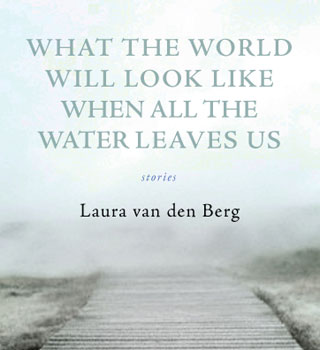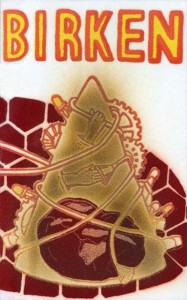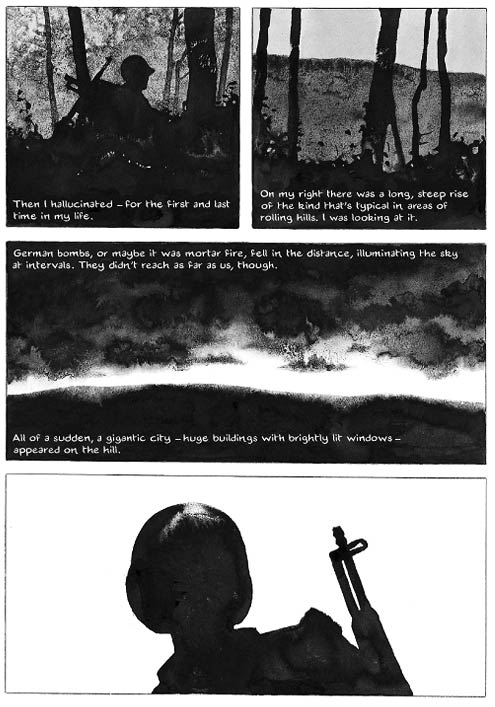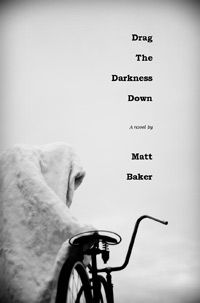 Matt Baker‘s work is forthcoming or has appeared in the Cimarron Review, Texas Review, Tampa Review, Saint Ann’s Review, Santa Clara Review, FRiGG, Big Muddy, Saint Ann’s Review, Main Street Rag, and elsewhere. He’s the author of the novel Drag the Darkness Down (No Record, 2009.) You can read Matt’s story “Playing Dead” on Fictionaut.
Matt Baker‘s work is forthcoming or has appeared in the Cimarron Review, Texas Review, Tampa Review, Saint Ann’s Review, Santa Clara Review, FRiGG, Big Muddy, Saint Ann’s Review, Main Street Rag, and elsewhere. He’s the author of the novel Drag the Darkness Down (No Record, 2009.) You can read Matt’s story “Playing Dead” on Fictionaut.
What influences you? What writers, comedians, film, etc. do you admire, that may have influence on your work as a writer, and just generally make you happy?
Funny people influence me. I’ve always liked comedians. There’s this acceptance that most comedians possess, this idea that life is largely absurd when you take our actions out of our own selfishly narrated context; and so the point is to sit back and laugh at ourselves and at least enjoy the show. I like that idea. So naturally people like Richard Pryor, George Carlin, Sam Kinison, Bill Hicks, et al, had a great influence on me.
Repo Man is a movie that makes me happy every time I watch it, as do most horror movies.
I couldn’t name all of the writers that have influenced me.
How did you start writing your novel? Where did the idea evolve?
This is where the original idea came from: There’s an exit I used to take on my way to work every morning that passed by Odom Manufactured Homes and Shiloh something or other, two businesses – I don’t recall the exact names. One day I saw, Odom Shiloh, and I thought, what a great name for a character. From there, I started to write it and then I added another character, Birdshit, then Blakey Flake, and it just spun from there.
There was no initial idea behind the story. The Dog of the South is one of my all-time favorite books, so once I had the characters in mind, I modeled it a bit on that story – taking off in search of someone, and encountering memorable characters along the way. However, Drag the Darkness Down detours into darker territory than the understated comic genius of Charles Portis. But there’s no doubt his work is a huge influence.
Is there anything you used to do that you don’t do anymore?
I used to smoke cigarettes, not follow directions, drive too fast, go to the mall, collect baseball cards, not pay attention, blow up mailboxes with dry ice bombs, write poetry, do prank phone calls, go into the mosh pit, and play miniature golf.
Describe your childhood in 100 words or less.
My childhood was fantastic. I have great parents, a nice older sibling. When I was a kid my best friend, Kevin and I, used to do all kinds of creative and fun things. We went to the movies constantly. We staged movies (live action plays, really) for the neighborhood, started a magazine, a newspaper; had a short-lived office supply business and put on a break dancing showcase; and we started a bug extermination business called BugBusters.
You once told me that sometimes you listen to a song, over and over, and that several stories can come about from that. Can you talk more about this?
I said that? Well, when I’m writing (not editing or revising) I’m usually listening to music. So oftentimes a song – whether it’s a lyric or melody – will strike me in a way that sends me off into a new direction and I’ll sometimes have to listen to the song over and over in order to extract the juice from the original jolt of inspiration I’d received. That’s basically what I meant.
How do you stay creative? What are your tricks to get “unstuck?”
I don’t think I’m ever not creative, whether it’s writing or just goofing around. I think the trick, if there is one, is twofold: discipline and diligence. If there are any tricks, those are the only two that will probably work.
I write my way through story problems or creative dips. I just type, type, type, and eventually I’ll work my way out of it. I don’t do well thinking too much or pondering, I have to be in the act itself – writing – for the resolution to arise.
What story or book do you feel closest to?
The Heart is a Lonely Hunter. I don’t remember very many opening lines but I always remember this one. “In the town there were two mutes, and they were always together.”
The Fictionaut Five is our ongoing series of interviews with Fictionaut authors. Every Wednesday, Meg Pokrass asks a writer five (or more) questions. Meg is an editor at Smokelong Quarterly, and her stories and poems have been published widely. She blogs at http://megpokrass.com.
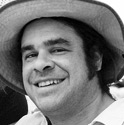 If you are new to Fictionaut, there may be confusion about what this place is. Facebook meets Zoetrope? A Wikipedia for the literary underground? Classmates for MFAs? What should be immediately apparent is that there are a lot of very talented writers here that you’ve never heard of. While Fictionaut could have easily become the tallest of slushy slush piles, the quality of the work — from back when the community was merely large, to now that the roster is enormous — has remained consistently good, thanks to the invite system and our unique place in literary history.
If you are new to Fictionaut, there may be confusion about what this place is. Facebook meets Zoetrope? A Wikipedia for the literary underground? Classmates for MFAs? What should be immediately apparent is that there are a lot of very talented writers here that you’ve never heard of. While Fictionaut could have easily become the tallest of slushy slush piles, the quality of the work — from back when the community was merely large, to now that the roster is enormous — has remained consistently good, thanks to the invite system and our unique place in literary history. At the
At the 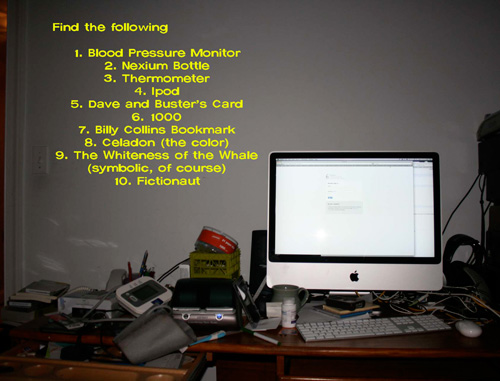


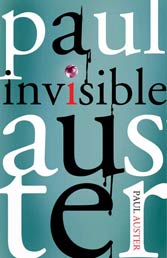
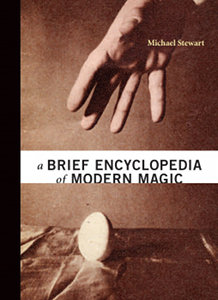
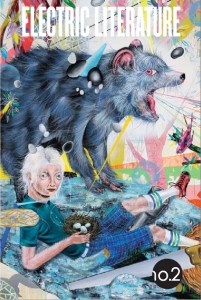
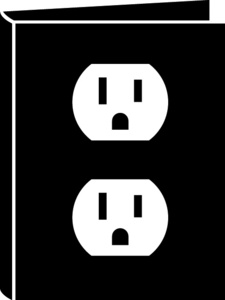

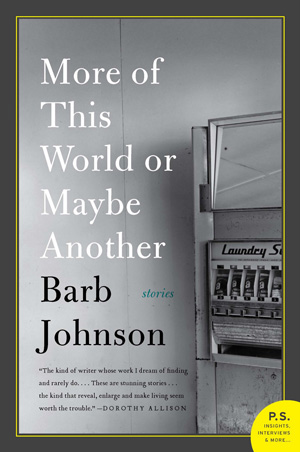
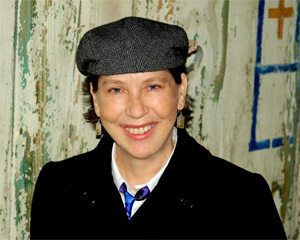 We all spend a lot of time working to make money, and the emphasis there is on production. I build and maintain websites. After spending hours using Dreamweaver, when I turn to creative writing, my brain keeps sending me frantic messages to the effect that I am not producing very much. Writing is not click and drag. Cut and paste. Fill in the blank. My brain begins to resent having to contemplate, to drift, which frankly is its own natural state. I am drifty by nature. Which is fine, except when it follows a stint of fill-in-the-blank kinds of things. That’s when drifting toward answers feels like it’s taking too long. It’s the mental equivalent of sitting down at a fine restaurant and feeling frustrated by the fact that your food doesn’t come to you as quickly as it does at Zombie Burger.
We all spend a lot of time working to make money, and the emphasis there is on production. I build and maintain websites. After spending hours using Dreamweaver, when I turn to creative writing, my brain keeps sending me frantic messages to the effect that I am not producing very much. Writing is not click and drag. Cut and paste. Fill in the blank. My brain begins to resent having to contemplate, to drift, which frankly is its own natural state. I am drifty by nature. Which is fine, except when it follows a stint of fill-in-the-blank kinds of things. That’s when drifting toward answers feels like it’s taking too long. It’s the mental equivalent of sitting down at a fine restaurant and feeling frustrated by the fact that your food doesn’t come to you as quickly as it does at Zombie Burger.